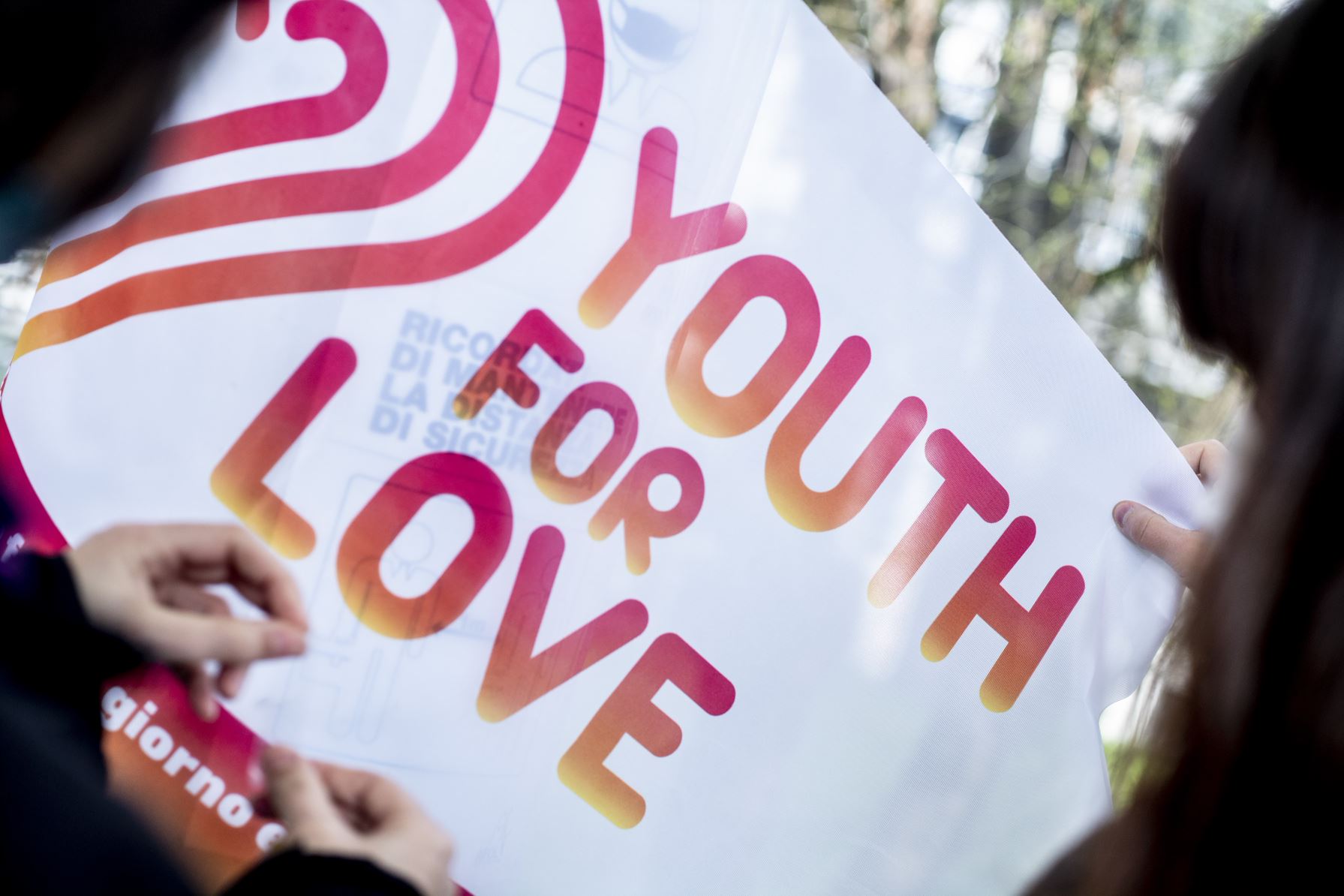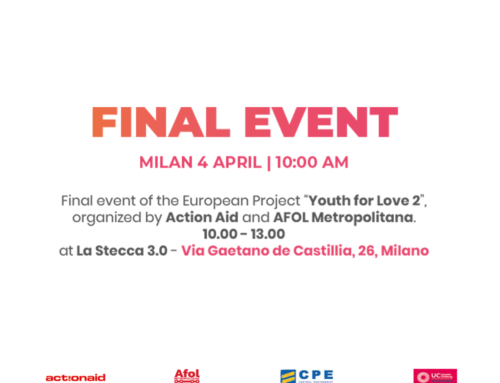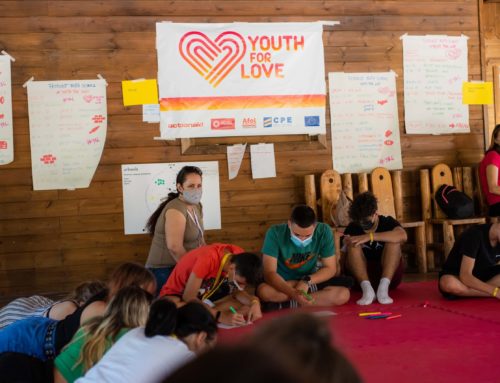To prevent, detect and address peer violence among adolescents
The findings from Youth for Love 1 show that teenagers experience violence in their day-to-day life both at school as well as in the places where they meet outside. Many students don’t perceive their school as safe, especially hallways/schoolyards, toilets and classrooms. Other unsafe places for them are on the way to and from school (43%), in the school classrooms (32%) and in the school toilets (34%) and according to 80% of the students interviewed youth engage in violence mainly in groups. Within the community there are several actors including youth associations, sport organizations, private/public service providers, authorities and other stakeholders that engage in preventing and addressing peer violence. However, less than half of the students interviewed are aware either of people or services whom they can report episodes of violence outside the school (Italy 42,7%, Romania 38%, Belgium 16%, Greece 41%). The percentages of teachers aware of external people and services is even lower: in Italy 13,7%, in Romania 17%, and Greece 20,6%.
Peer violence is a pervasive and widespread phenomenon that can have consequences at individual, family and community levels. Moreover, the prevention of youth peer violence is a critical aspect of meeting a wide range of youth, social, family, health and employment policy objectives.
Based on this evidence the “Youth 4 Love 2” project aims to prevent, detect and address peer violence among adolescents (14-18 years) in 5 local communities in 4 European countries (Italy, Belgium, Greece, Romania), by promoting the adoption of positive behaviours for preventing and addressing peer violence among youth, families, educational professionals and community members at large who will be involved in community-based initiatives developed and led by youth to prevent and address peer violence.
Whereas Youth for Love 1 had a more specific focus on School-Related Gender-Based Violence (SRGBV), in this second edition of the project partners have chosen to have a wider focus on peer violence by addressing violence and discrimination in their interdependencies through a strong community engagement approach for building collective power against different forms of discrimination and power inequality with an intersectional lens.
Adopting the Whole School Approach, starting from the centrality of students’ well-being, it will therefore work at multiple levels promoting the role and collaboration of different stakeholders including young people, parents, education professionals, civil society organisations, authorities and members of the broader community. This approach acknowledges that schools are important to reduce and prevent peer violence because they can involve many young people at one time. Nonetheless, school-based interventions need to be integrated by broader violence-prevention initiatives conducted at the community level to address the risks factors that stem from outside the school environment.
At European level, the project aims at:
- Developing and testing an integrated educational programme for the prevention and management of peer violence in 5 local communities across Europe.
- Informing and training 190 school professionals to strengthen their competences in preventing and managing peer violence and become the school’s focal point on peer violence.
- Engaging 50 parents or tutors in a specific training programme to strengthen their role in the prevention and management of peer violence at school and community level and strengthen their skills to ensure support.
- Providing 400 students with a strong knowledge and understanding of peer violence through a participatory educational programme.
- Involving 200 youth in mapping the needs of their local communities connected to peer violence, with particular attention to youth, and engage the entire educational community in actions to prevent and fight it.
- Advocacy at national and European level through a participatory process to co-design the project’s policy recommendations involving school professionals, students and parents, youth, civil society organizations and movements and policy makers.
- Raising public awareness of the problem of peer violence among young people and involving 1.5 million of them across Europe through communication activities.
In addition to the dedicated website, which will offer resources and content transferable to other educational settings that will help teens, parents, and teachers recognize signs of bullying or violence, Youth For Love also uses a webgame as a powerful tool to promote active learning and critical thinking.
The project partnership is composed of the following European organizations: ActionAid Italia (Italy), ActionAid Hellas (Greece), UC Limburg (Belgium), AFOL-Agenzia Metropolitana per la Formazione, l’Orientamento e il Lavoro (Italy) e CPE – Fundatia Centrul Partenariat Pentru Egalitate (Romania).
The project is co-funded by the European Union – DG Justice, Consumers and Gender Equality of the European Commission.
Duration of the project: May 2021 – April 2023










